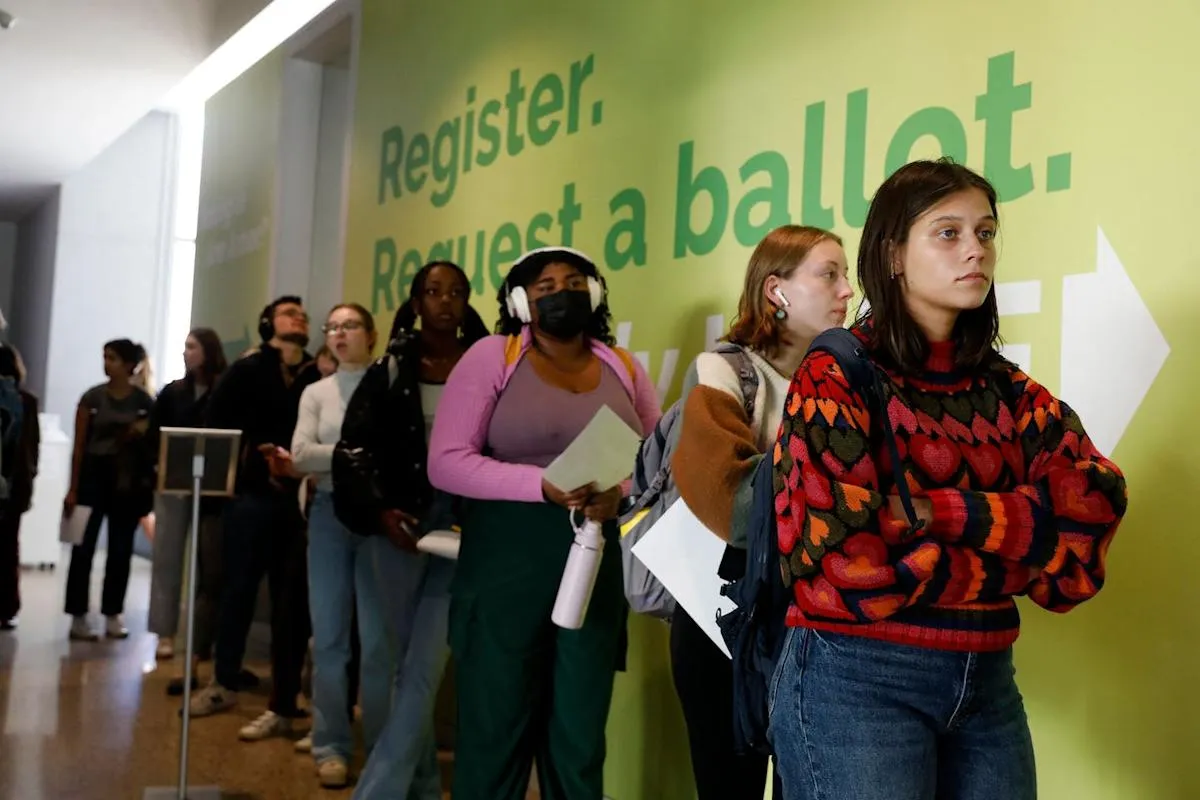Trending
Gen Z and UK Politics Youth Voter Turnout Expected to Rise in 2026

The upcoming 2026 UK general election is expected to see a significant rise in youth voter turnout, marking a generational shift in political engagement. Analysts predict that Gen Z, those born between the late 1990s and early 2010s, will play a decisive role in shaping the country’s political landscape. With millions of new voters eligible to cast their ballots for the first time, political parties are increasingly focusing their campaigns on younger demographics. From climate change and education reform to housing affordability and digital rights, the priorities of Gen Z are influencing the tone and direction of national politics like never before.
A New Generation Steps Into Political Power
In previous elections, young voter turnout has lagged behind older age groups, but early indicators suggest a dramatic reversal ahead of 2026. Recent surveys by the Electoral Commission show that over 70 percent of 18-to-24-year-olds intend to vote in the next election, a sharp increase from the 55 percent turnout in 2019. Political observers attribute this surge in interest to heightened social awareness, digital activism, and a growing belief among young people that their voices can directly influence national policy.
The issues driving this engagement are distinctly generational. Climate action, mental health services, and social equality rank among Gen Z’s top priorities, followed closely by education costs and employment opportunities. This generation has grown up amid economic uncertainty, technological transformation, and global crises, factors that have shaped a politically conscious and socially connected identity.
Political scientist Dr. Amelia Grant notes that Gen Z’s digital fluency has transformed how politics is discussed and mobilized. Social media platforms such as TikTok, Instagram, and X (formerly Twitter) are now central to political discourse. Campaigns that once relied on televised debates and printed manifestos are adapting to short-form video messaging, influencer endorsements, and interactive voter outreach strategies.
Grassroots movements have also played a major role in energizing young voters. Initiatives promoting voter registration, fact-checking, and civic education have surged online, with digital volunteers creating accessible content to combat misinformation. As a result, the gap between political awareness and actual voter participation is narrowing, a development that could redefine the outcome of the 2026 election.
Political Parties Target the Youth Vote
Recognizing the growing influence of Gen Z, major political parties are tailoring their policies and messaging to appeal to this emerging voting bloc. The Labour Party has focused on education reform, pledging to expand access to apprenticeships and reduce student debt burdens. Its climate policies also resonate strongly with young voters, particularly those advocating for renewable energy and environmental justice.
The Conservative Party, on the other hand, has emphasized economic stability, entrepreneurship, and housing affordability, issues that directly affect young professionals seeking financial independence. Initiatives such as first-time homebuyer support programs and startup tax incentives are designed to attract younger voters who value economic opportunity and security.
Smaller parties and independent candidates are also finding traction with Gen Z voters. The Green Party’s emphasis on sustainability and proportional representation, as well as the Liberal Democrats’ advocacy for digital privacy and civil liberties, have gained increased attention among young people seeking alternatives to the traditional two-party system.
Experts suggest that Gen Z’s political influence extends beyond party preferences. This generation’s approach to politics is values-driven rather than ideological, prioritizing authenticity, accountability, and inclusivity. Politicians who engage transparently on social media, respond to real-time concerns, and demonstrate empathy are far more likely to earn young voters’ trust.
In local government and student unions, young candidates are already reshaping political culture. The number of under-30 councillors has doubled in the past decade, and youth-led advocacy groups are becoming influential voices in policymaking. Their presence signals a gradual generational renewal within British politics, where leadership increasingly reflects the diversity and dynamism of modern society.
Technology, Representation, and the Future of Participation
Technology continues to be both a catalyst and a challenge in youth political engagement. On one hand, it has democratized access to information, making it easier for young voters to learn about candidates, policies, and voting procedures. On the other, it has amplified misinformation and polarization. Election officials are working to strengthen digital literacy programs to help first-time voters identify credible sources and participate responsibly.
Representation is another driving force behind Gen Z’s growing involvement. The demand for greater inclusion of young voices in policymaking has sparked initiatives within Parliament and political organizations to establish youth advisory boards and mentorship programs. These efforts aim to bridge the gap between experienced legislators and emerging generations, fostering collaboration on long-term national challenges such as climate adaptation, AI regulation, and healthcare reform.
Voter registration campaigns are leveraging technology to streamline participation. Mobile applications now allow users to register, verify eligibility, and locate polling stations within minutes. Combined with expanded early voting and mail-in ballot options, these tools are expected to make the 2026 election one of the most accessible in history.
Social and cultural trends are also reinforcing civic responsibility. Movements promoting equality, sustainability, and mental health awareness have encouraged Gen Z to see political engagement as an extension of activism. Unlike previous generations, many young voters view political participation as part of their identity, a way to align personal values with national direction.
Conclusion
The rise of Gen Z in UK politics represents more than just a demographic milestone, it signals a generational shift in how democracy functions and evolves. With record numbers of young voters expected to participate in the 2026 election, political leaders face growing pressure to address issues that resonate with youth aspirations and concerns.
As the country approaches this pivotal moment, the engagement of Gen Z promises to inject fresh energy, ideas, and accountability into British democracy. Whether through the ballot box, social media, or grassroots campaigns, young voters are poised to redefine political participation and ensure that the voices shaping the future of the UK are diverse, informed, and empowered.










